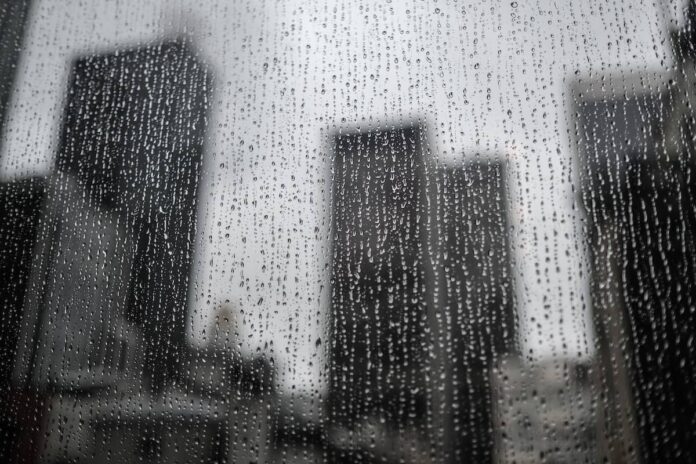Landlords are notorious for doing things that they should be doing (or not doing). From strange instances to downright unlivable conditions, you are not powerless as a resident in New York City. There are plenty of codes and regulations out there to protect you, not to mention resources available for help and questions. For a snapshot of things your landlord might be doing that are against the law, including ones you probably had no idea about, read on.
1. Illegal Additions
As cool as it may seem for your landlord to install or permit an add-on that livens the space up, it is generally illegal. Take, for example, a pool added to the rooftop of the building. As nice as it may be during the hot months – unauthorized additions like these pose a major safety hazard.
Sound familiar? That’s because it was recently reported that one landlord in New York is in serious trouble after an oversized pool was found on their building’s rooftop. Though promptly removed upon being discovered, the landlord is still facing up to $50,000 in fines due to the illegal, unpermitted installation.
The Williamsburg building located on Flushing Avenue was not structurally equipped to handle the massive 480 sq-foot addition or the 60 tons of water intended to fill it! Additions like this and any other questionable decisions added directly by the landlord or a tenant-installed addition that a landlord fails to detect, pose significant hazards to buildings and residents.
Other relevant issues include allowing some units to be used as short-term vacation rentals or even encouraging unsafe living conditions (Attn: McKibbin Lofts) to garner a little extra cash also falls under the umbrella.
2. Not Fixing Damaged Doors
Failure to fix damaged doors is a major fire hazard ad disproportionately affects those with lower socioeconomic statuses. If you’re not familiar, New York City Administrative Code requires building owners in multi-family unties to install and continually maintain self-closing doors in a building.
Failure to maintain these self-closing doors is a hazardous violation and not only can mean legal troubles for building owners but also equals a huge safety issue for residents. Damaged self-closing doors have been traced back to numerous tragedies and excessive deaths, including the Twin Parks fire in January 2022 and the Prospect Avenue fire in December 2017. In each of these instances, damaged fire doors that did not self-close were responsible for worsening each individual fire.
When a self-closing door is not maintained, a fire can easily spread through a building, causing more damage. The City has documented plenty of instances of fire door violations, including buildings directly proclaiming themselves as fire-safe or conscious while housing a long list of violations.
More measures are expected to be implemented to better enforce fire door maintenance, including more frequent inspections by the city. In the meantime, a tenant can periodically check their own building’s fire doors to ensure proper use and bring any issues to the building owner and, subsequently city officials where necessary. Find more details here.
3. Working Without a Permit
For most, life in the busy city leaves little time to worry about things beyond your immediate interest or control. But if you save energy for just one thing, it should be what goes on in the place you rest your head.
It’s illegal for your construction to happen in your building without the proper permits. This ensures that everything is done to code and as safely as possible. If your building owner does not have the permits, let alone post them in a central, visible location like the lobby, this is a violation.
Why does it matter to you so long as the work is done? Because building permits mean that your dwelling is being updated according to New York City’s laws, codes, and other important local ordinances. This construction worker fell to his death while working on a building in 2014 with a number of violations both safety-related and for working without having a permit. Permits and all of the approval that goes into them help to keep people – construction workers, residents, and any passersby alike – safe.
Along with the permit, your building is also required to distribute and post copies of the Safe Construction Bill of Rights, which outlines details on the construction, including hours for construction, construction purpose and timeline, and information for complaints or questions for residents. Failure to do so violates numerous regulations, including Local Law 159.
4. Not Abiding by Heating Season Laws
Did you know your landlord or unit owner is legally required to supply you with heat during New York’s “Heating Season” from October 1st through May 31st? During this period, your landlord must heat your unit to a minimum temperature that depends on the time of day. More specifically, during the day, from 6 am to 10 pm, the interior of the building must be a minimum of 68 degrees when temperatures dip below 55 degrees.
At night, between 10 pm and 6 am, the interior must be heated to a minimum of 62 degrees, regardless of external weather or temperatures. If your building landlord fails to heat the building to these minimum temperatures during the Heating Season, they are breaking the law. If your landlord refuses to address the matter, you can contact 311 to report the problem rather than trying to solve it.
In the case of the Twins Parks Bronx Apartment fire, residents not only worried about fire doors but residents were also complaining of problems with heating. While the flames were exacerbated by failed safety measures, the original cause was a space heater. As a modern building equipped for heat and taking place during the heating season, it’s believed that proper heating could’ve prevented the fire in the first place.
Find more information on how collecting evidence helps and the next steps here. Know that this is a very serious violation and that your landlord can be found liable and responsible for providing you heat, though it is not always a clear-cut solution or a one-time fix-all.
5. Not Giving Interest for Your Security Deposit
When applying for an apartment, it is legal for your landlord to require a security deposit equal to no more than one month’s rent. However, in buildings with six or more units, your landlord is also required to place that security deposit into an account with a New York banker. So, no, your landlord is not legally allowed to keep that money for themselves or spend it freely as it is still the property of the renter until moveout when damage is assessed.
More so, your landlord is required to provide the information of the bank account and the amount deposited to each individual renter. If, at the end of your residency, you’re eligible to receive your security deposit back – meaning you’re up to date on rent and have no damage beyond normal wear and tear in your unit – you shall receive a portion of the interest accrued while the funds sat in the account.
More specifically, the landlord is permitted to keep only 1% of the deposit for administrative fees, and the rest goes to you. It is illegal for your landlord to fail to supply you with the bank information throughout your residency or include interest accrual with your security deposit upon moving out. An example of this, as outlined by the Attorney General’s Residential Tenants’ Rights Guide, if a security deposit of $1,000 were given to a landlord and earned interest at an annual rate of 1.5%, the landlord could keep $10.00 of the total interest amount with $5.00 going to the resident. When renting luxury spaces, these numbers become even more impactful.
Final Thoughts
New York laws, specifically tenant and landlord-based laws, are built to protect those that are most vulnerable. Whether it be something seemingly innocent like a pool (even one that you might’ve benefited from unknowingly at first) or something shotty work sans permits, you, as a tenant, are entitled to rights. Any concerns should be discussed with your building owner or landlord directly. For the next steps, consider contacting officials via 311 and visit the Attorney General page.
Kylee was born and raised just outside of Sacramento in a small town full of history and charm. She stays up-to-date on the real estate market and hopes to empower hopeful buyers and sellers to make the best decisions for themselves. Kylee is particularly interested in bridging the gap for younger generations, helping them understand the power of owning and investing in real estate.



